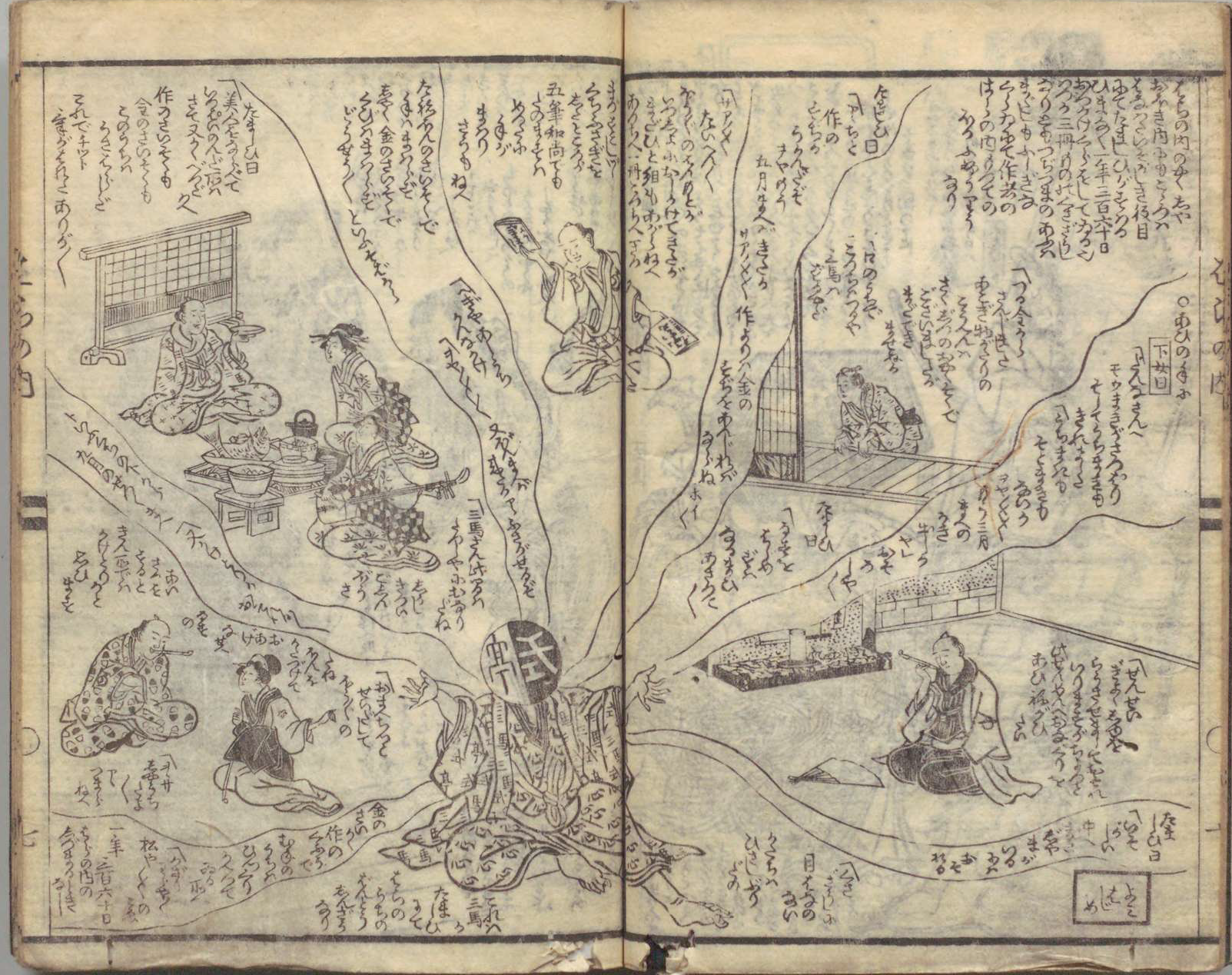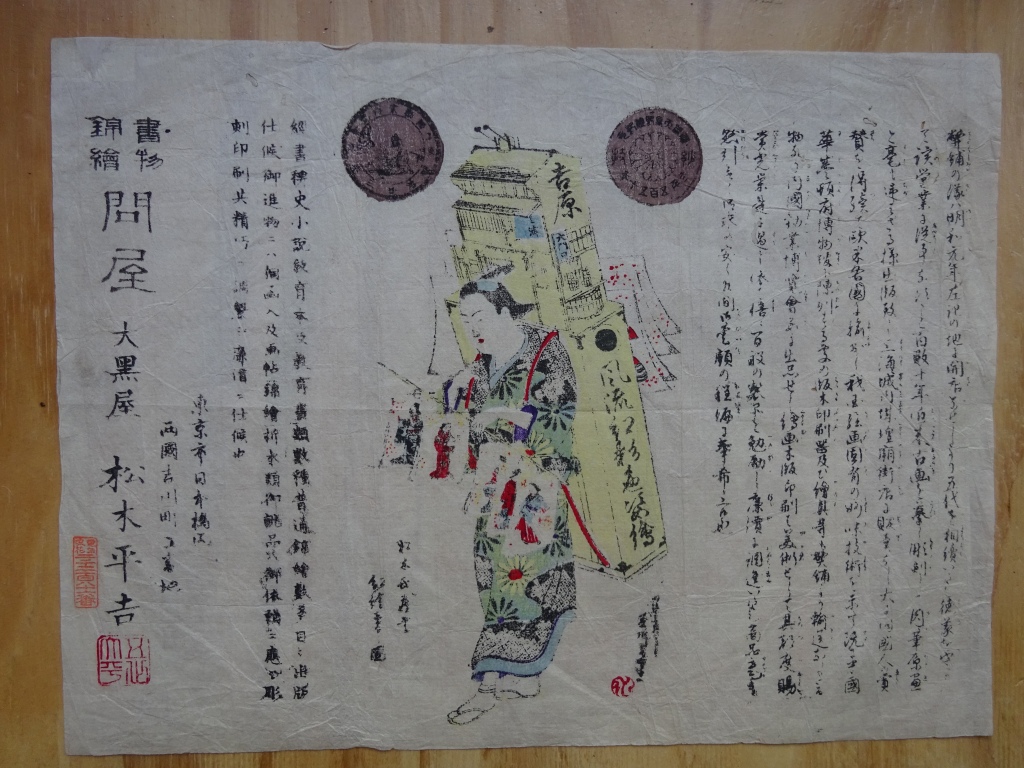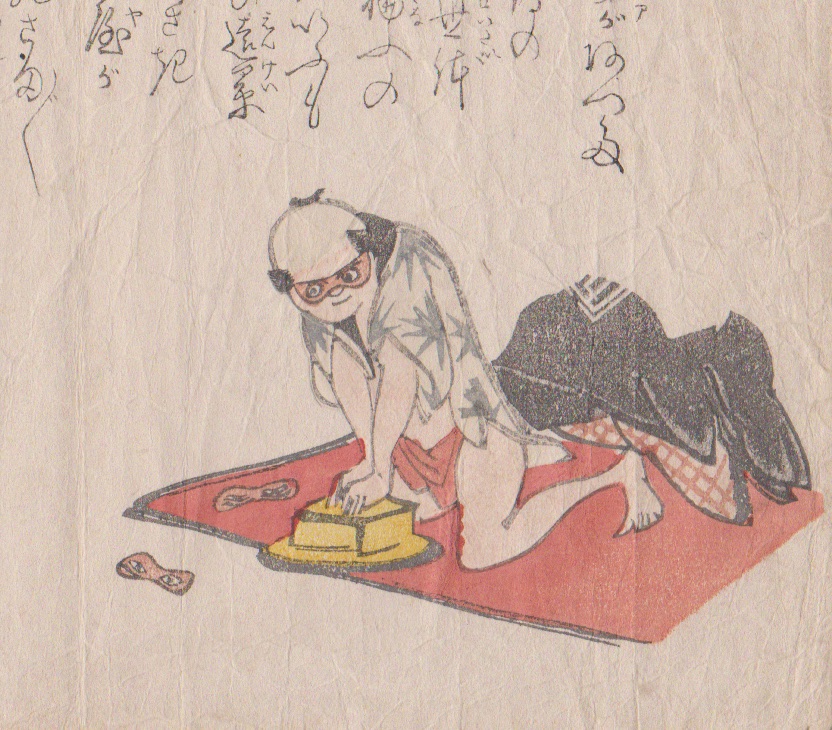We are celebrating the Tenth anniversary of the Summer School in Early Modern Japanese Palaeography at the University of Cambridge.
The Tenth Summer School will be held between
Monday 31 July 2023 and Friday 11 August 2023.
We are planning an in-person summer school at Emmanuel College and the Faculty of Asian and Middle Eastern Studies.
Conceived as a contribution to the field of Japanese studies globally, the summer school trains the new generations in decoding, transcribing, and translating early modern manuscripts and woodblock-printed texts. With us you acquire and hone the complex set of skills required to work with early modern Japanese texts. Recognizing shapes is just a first step! Key in our pedagogical approach is to recognize that working on Edo-period texts and transcribing them is all about getting the meaning. Academic institutions, libraries and museums often require palaeographic knowledge at some level. Our summer school is designed to provide you with the skills necessary to tackle a wide range of early-modern primary sources in their original format by yourself and, therefore, to be competitive in these kind of job opportunities.
This year again we will continue our collaboration with the AI-powered transcription platform Minna de honkoku みんなで翻刻, developed by Prof Hashimoto Yuta (National Museum of History). We also have an exciting collaboration with rakugo master Tatekawa Shinoharu, with pieces of shinsaku and koten rakugo inspired by our readings and much more! Master Shinoharu will be here in person. We will also have a range of guest lectures including Prof Satō Katsura (Aoyama Gakuin) and Prof Satō Yukiko (The University of Tokyo).
Application form
Deadline:15 January 2023
THE CALL IS NOW CLOSED
Contents and teaching
The theme of this year is “Entertainers and Entertainments in Early Modern Japan.” We will be reading a wide range of materials that deal with a various forms of entertainments including humorous storytelling, theatrical sketches, jokes, riddles, graphic narratives, and much more! We will also read about entertainers, including Shika no Buzaemon, Tsuyu no Gorobee, Shikitei Sanba among others. The focus will be on vernacular Japanese (wabun) and we will also cover some sōrōbun.
All sessions run as interactive seminars. The bulk of the teaching will be done by Prof Laura Moretti There will also be “booster sessions” with teaching assistants. These will be particularly beneficial for beginners.
This year we will not be able to offer kanbun kundoku.
Please make sure to arrive on Sunday 30 July 2023. Classes start on Monday 31 July 2023, 9am BST and end on Friday 11 August 2023, 5pm BST.
Learning outcomes
With us:
– You familiarize yourself with a variety of calligraphic styles.
– You learn effective techniques to master hentaigana and kuzushiji.
– You learn how the act of decoding and transcribing is a matter of understanding the meaning of a text.
– You reflect on how to translate early modern texts.
– You familiarize yourself with a number of resources (digital and analogue) to read early modern texts.
– You create a network with likely-minded scholars from across the globe and make friends for life.
Over the years we have devised ways to successfully accommodate three levels in the classroom: beginner, intermediate, and advanced. Those participants with no knowledge of kuzushiji and hentaigana will be required to complete some preparations before attending the summer school. Some materials can be already accessed HERE.
Who can apply and requirements
We welcome graduate students (both at the Master and at the PhD level), undergraduate students, faculty, librarians and museum curators who work on Edo-period materials. Those who have already taken part in the previous Summer Schools are encouraged to reapply if they wish to do so. The programme changes every year.
We require that you have:
1. Advanced knowledge of modern Japanese (both written and spoken).
2. Solid knowledge of classical Japanese (bungo).
Acceptance to the programme
We can only accept a maximum of 35 participants every year. If we receive applications beyond this number a selection will be made on the basis of the relevance of the Summer School to the applicant’s research and work. Notification about whether an applicant has been accepted or not will be sent at the end of February 2023.
Tuition fees
The tuition fee for the whole programme is £300. The tuition fee covers an average of 60 hours of tuition, guest lectures, preparatory materials and manuals, other extra-curricular activities, and coffee breaks.
We ask that a non-refundable deposit of £150 is paid by 1 March 2023.
The remaining £150 will need to be paid by 1 July 2023 and cannot be returned after that date.
All payments are done online via a secure system administered by the University of Cambridge.
*** The tuition fees for undergraduate students and master‘s students are reduced to £150 ****
The tuition fees for undergraduate students and master’s students will need to be paid in full by 1 May 2023 and cannot be returned after that date.
We may have some modest travel grants for a handful of participants but this can be confirmed only quite late in the spring.
Accommodation at Emmanuel College
If you wish to do so, you can book accommodation in Emmanuel College.
We currently have two packages.
Room and breakfast
Single room, ensuite: £40 per night (limited number)
Single room, non ensuite: £35 per night
Unfortunately we have no double rooms this year.
Room, breakfast, and dinner
Single room, ensuite: £59 per night/day (limited number)
Single room, non ensuite: £54 per night
Unfortunately we have no double rooms.
You are, of course, free to explore other options in or near Cambridge.
Be mindful that classes start at 9am and conclude at 5pm, Monday to Friday for two weeks.
As for lunches, we are looking into different options and will updated the page in due course. The lunch package will not
Read more on how to reach Cambridge.
Testimonials
This is absolutely the best course in the world to study pre-modern Japanese palaeography. (John, 2021)
This is possibly the most effective course out there to learn as much to read and transcribe early modern Japanese paleography as possible within a short period of time. (Xiangming, 2022)
This one of a kind course is a great way to rapidly increase your ability at reading early modern cursive Japanese, meet new people in the field of Japanese studies and related areas, and interact with a range of fascinating primary sources. I hope I am lucky enough to be able to participate again! (James, 2022)
The Cambridge summer school offers excellent instruction in a very challenging discipline. The focus on unlocking meaning, mixture of group and individual work, and support for those at different levels makes it of great value both for development of skills and networking. (Mary, 2022)
The summer school has a lot to offer. You get to learn specialised skills from highly skilled teachers, meet fellow researchers and enthusiasts, learn about the historical context of Japanese books and society, and as a bonus: visit the city of Cambridge. (Elias, 2022)
It’s very intense and effective course. The instructors will guide you on how to read and give you some useful tips. Also, you’ll have wonderful friends and a pleasing environment for studying. (Saranya, 2022)
The program offers the opportunity to learn this seemingly obscure script from the best and most generous teacher who will make it fun, accessible, and interesting in a beautiful and historic setting at one of the best universities in the world. You will also make many new friends and contacts from all over the world in your field. (Maya, 2022)
That it’s the best place to challenge yourself, learn an incredible skill, meet amazing and kindhearted people and have a load of fun! All of that squeezed into two weeks in the amazing heart of Cambridge. (Anonymous, 2022)
If you are a complete beginner to kuzushiji, this is the place to be! What better way to learn than surrounded by such a diverse cohort of rare book sellers, professors, students, curators of different levels but with the same vigorous love for premodern Japanese studies. I felt intimidated at first as a beginner, but quickly realized that everyone around me is learning something new and is extremely supportive of others’ progress. Everyone’s excitement about the texts was contagious, and each little moment of discovery made the many hours of scratching our heads worth every second. (Kassandra, 2022)
The summer school is intensive but worth every bit of the hard work and effort. It brings people from all over the world to engage with and transcribe a wide variety of texts. Through the expertise and encouragement of the Instructor and course participants with varying backgrounds and experience, you gain the palaeographic skills to start decoding early-modern texts by yourself, no matter what your level. Combining inter-active lectures, talks from scholars outside the university, and Japan-related activities, there is something for everyone on this course and it is a fantastic opportunity to delve into the world of early-modern Japanese texts. (Anonymous, 2022)
It is one of the best opportunities to learn how to decode, transcribe, and translate early modern texts in a friendly, and productive environment! It is also a unique opportunity to connect to peers and colleagues from all over the world.(Anonymous, 2021)
If you want a highly charged, challenging, and fun experience for learning kuzushiji, look no further. This program is so thoughtfully planned and expertly run, while also just being thoroughly enjoyable – high energy, fun, efficient, not a moment wasted. It’s go-go-go, in the best way (Nancy, 2021).
Participating in the Summer School in Early Modern Japanese Palaeography is really helped me to expand my knowledge of how to read old Japanese texts. Anyone working with Edo period Japanese language sources would benefit from participating in the course! (James, 2021)
One of the best parts of the summer school is that it not only teaching you how to read early modern texts, but also introduces you to a community of scholars, researchers, and hobbyists from all over the world who you will encounter time and again. (Victoria, 2021)
The Summer School not only provides tactics for kuzushiji recognition but also offers information on kobun, sōrōbun, Japanese book history, cultural history, and many other fascinating topics. I met so many kind and knowledgeable people in my field and can’t wait for next year’s course! (Rose, 2021)
It was so much fun that you hardly noticed how much you learned in each session! The focused yet lighthearted atmosphere created the perfect study environment. It is an experience not to be missed! (Sabine, 2021)
Application form
(same as above)
Deadline:15 January 2023
THE CALL IS NOW CLOSED
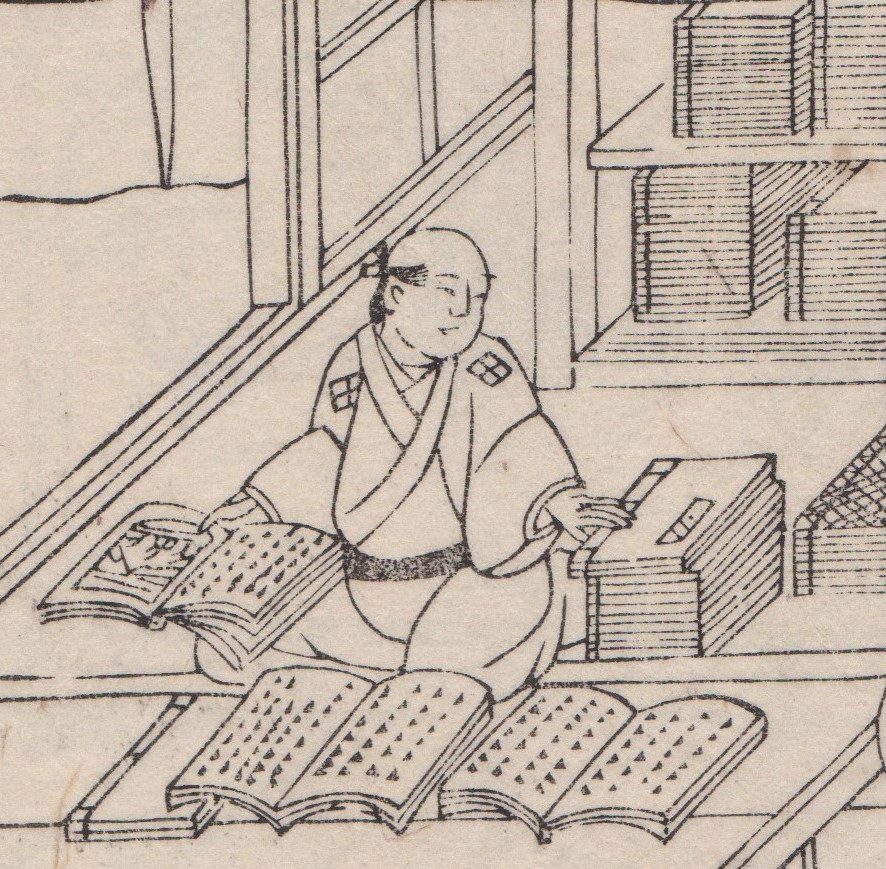
For any query please write to
Prof Laura Moretti: lm571@cam.ac.uk
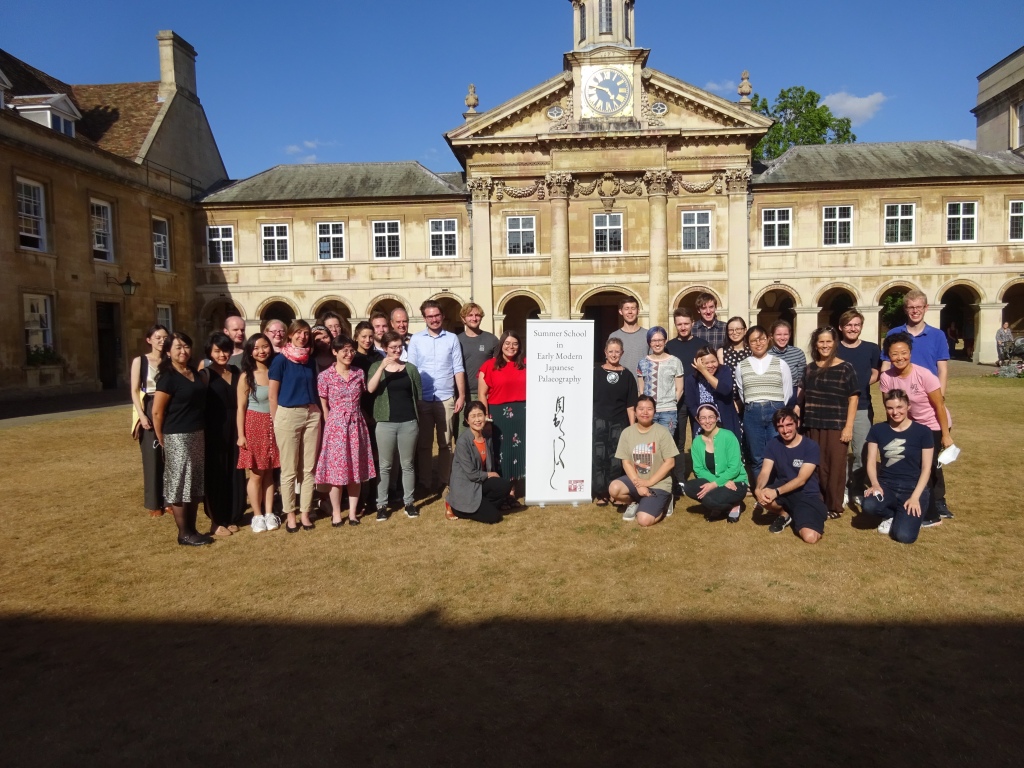
Summer School 2022













